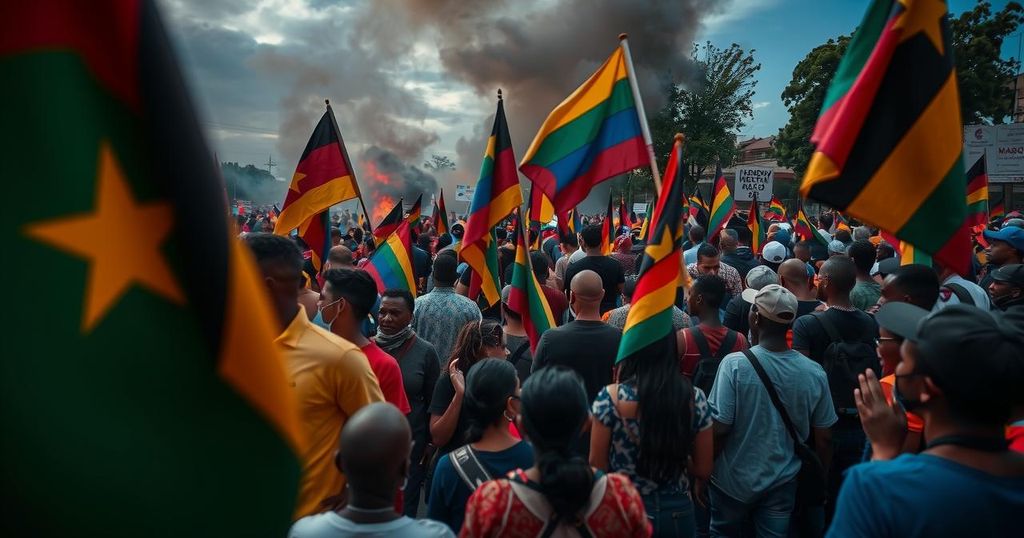Social Media Connectivity Disrupted in Mozambique Amid Protests Over Election Results
Mozambique is experiencing a nationwide social media blackout due to a strike organized by opposition leaders protesting disputed election results. Following the elections held on October 9, which Frelimo candidate Daniel Chapo won with 71% of the votes, violence has erupted, resulting in multiple fatalities and injuries. The government’s restrictions on social media are perceived as efforts to suppress dissent amid ongoing unrest.
Mozambique has witnessed a significant disruption in social media services as opposition leaders call for a nationwide strike in response to contested results from the general elections held on October 9. According to NetBlocks, a global internet watchdog based in London, citizens have been unable to access popular platforms such as Facebook, WhatsApp, and Instagram since the onset of the strike on Thursday. NetBlocks confirmed that these social media restrictions were executed amid the mounting unrest. In the days following the election results disclosure, which announced Frelimo candidate Daniel Chapo as the winner with 71% of the votes, widespread protests erupted. Opposition representatives, led by Venancio Mondlane who garnered 20% of the votes, have passionately contested the election outcome, prompting the planned demonstrations. Last Friday, a temporary internet blackout was enforced after the electoral results were announced, resulting in significant disruption to mobile internet connectivity across the nation. Reports indicate that the aftermath of the elections has turned violent, with Human Rights Watch stating that at least 11 individuals have lost their lives and over 50 others sustained injuries during the protests observed on October 24 and 25. On the evening prior to the strike, local police issued warnings discouraging engagement in what they referred to as acts of “sabotage.” The government’s efforts to quell dissent and limit communication via social media are perceived as attempts to hinder the organization of protests. As the weeklong strike commences, the situation in Mozambique remains tense, with opposition leaders and civil rights organizations advocating for transparency and accountability in the electoral process, amidst allegations of electoral malpractice.
The current unrest in Mozambique stems from the general elections held on October 9, where the ruling party, Frelimo, was accused of electoral malpractice following the announcement of the results. Approximately 17 million registered voters participated in the election. The significant discontent from the opposition factions led to calls for a strike, coinciding with social media blackouts intended to prevent mobilization for protests. Observers highlight that such restrictions may reflect a broader trend of suppressive measures taken by governments in response to civil unrest following disputed elections, raising concerns regarding human rights and freedom of communication within the country.
The situation in Mozambique is indicative of a fractured societal response to perceived electoral injustices, with significant ramifications for communication and civil liberties. The opposition’s call for a nationwide strike is compounded by a governmental clampdown on social media, reflecting ongoing tensions in the political landscape. The international community and human rights organizations will likely continue to monitor developments as protests unfold.
Original Source: www.aa.com.tr




Post Comment